A Comparison of Text Search
by Jess Erdman, Content Marketing LeadJanuary 2023

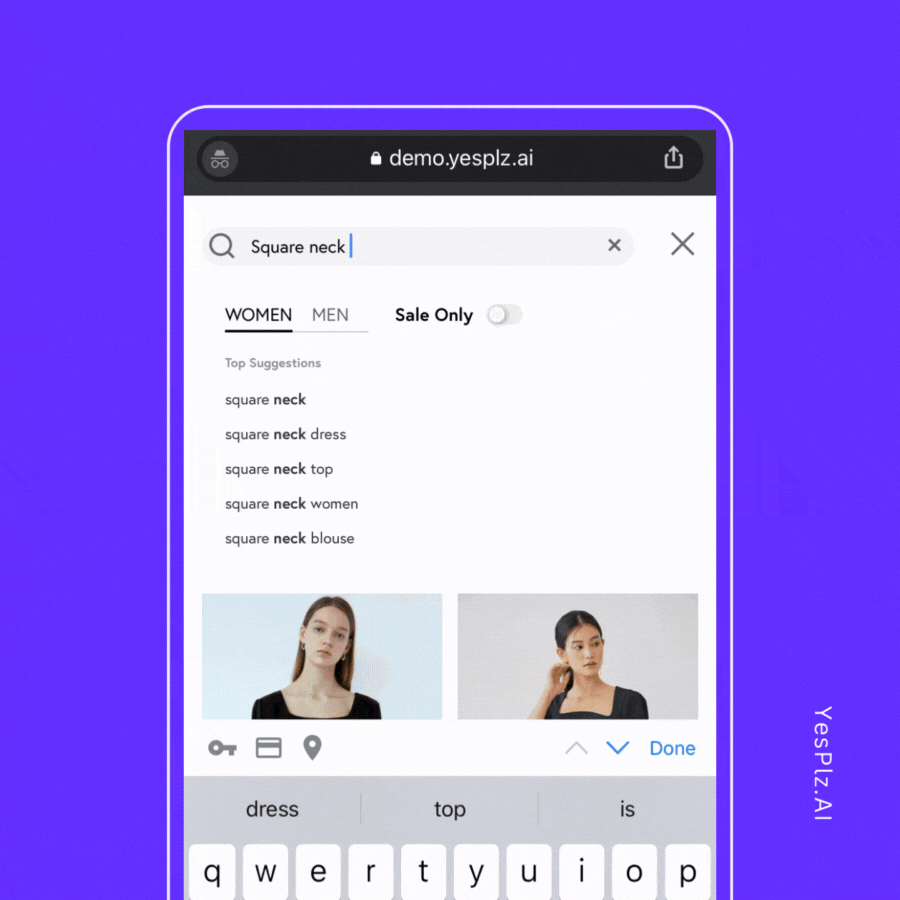
eCommerce search is an essential part of the shopping experience, particularly when it comes to text search. Users type in their search queries and expect to receive relevant search results.
In a traditional eCommerce site search experience (without any AI technology), a users’ keyword search is matched against a manually configured glossary of keywords.
Unfortunately, due to ever-changing fashion vocabulary and the complexity of search queries, traditional eCommerce search still falls short in reaching its full potential, leading to poor matching results and frustrated shoppers.
The Current State of Search Technology in 2023
In 2023, the fashion eCommerce industry has evolved to use algorithms like NLP (Natural Language Processing) to further interpret shoppers’ search language, attempting to define intent and meaning behind search queries more effectively.
But, the hypothetical value is often not the same as the reality, because of:
1-high prices
2-large data sets needed to train the algorithm
3- the sheer complexity of search queries
The two types of algorithm-powered text search models are:
1. Contextual:
In theory: Matches user search intent using context clues relevant to the individual user. Search results are specific to a user.
Reality: Difficult to provide relevant search results, and expensive to run
2. Semantic:
In theory: Uses NLP to identify meaning and logic behind search. For example, a “work dress” search is synonymous with “wear-to-work” or “office dress”
Reality: Depends on quality of product tags, which may be mismatched.
Too slow to capture up-to-date, modern fashion keywords.
Requires manually updating glossaries.
In 2023, the majority of search technology still requires manual configuration, is expensive, and is still prone to errors.
And, it’s not that these search models are bad–but there’s still untapped potential in making text search even better, more optimized, and more relevant.
But, how?
By using fashion tagging at its core, we’ve created text search that combines different types of AI, unlocking a new, revolutionary approach to traditional text search.
The most common problems in “traditional” eCommerce search are:
1) irrelevant search results;
2) poor understanding of search intent;
and 3) low quality (or missing) product tags.
At YesPlz, we’ve built a comprehensive text search system to solve these problems.
Our formula to resolve the problems includes:
Thanks to machine learning, we can customize search results for each of our clients’ specific needs.
Here’s the YesPlz antidote to inaccurate, one-dimensional eCommerce text search:
Outdated Solution |
The YesPlz Solution |
|
|
Fresh, popular keywords: |
Lacks up-to-date, popular keywords. |
Automatically update with latest keywords based on past user input |
|
Autocomplete suggestions |
No keywords to nudge or guide shoppers. |
Suggested autocomplete keywords, based on popularity or similarity. |
|
Instant search results with product preview |
Search results only show after typing in complete search keywords. |
Updated search results displayed with each keystroke. |
|
Additional Filter Paired with Text Search: |
Hundreds of low-accurate matching search results, leading to higher bounce rate. |
Fully integrated filter alongside search results. Shoppers filter down further, increasing possibility for add-to-cart. |
|
Enhanced image tagging |
Search results limited to matching text descriptions. Huge missed potential for matching results. |
Key product attributes extracted from image, not product descriptions. Increases percentage of higher matching results. |
|
Brand recognition |
No brand recognition from catalog. Missed opportunity to help shopper discover favorite products from brands. |
Brand recognition from search, leading to search results that match brands. |
Discover the full potential of eCommerce site search
YesPlz’s eCommerce site search solutions are designed to stand out to both retailers and shoppers, from its underlying technology to its customizable features.
But, what exactly is the difference between YesPlz eCommerce search and top competitors?
Here’s a quick overview of all the features your eCommerce could be unlocking:
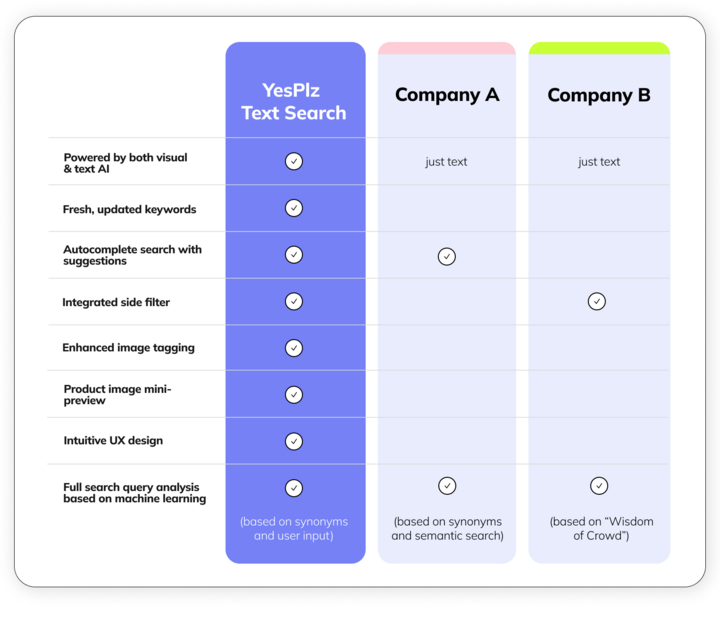
The impact of added features for text search:
Accurate product tags when using enhanced image tagging, building the foundation for personalization
The power of the above features, when combined, means outstanding text search that always provides relevant, updated results.
W Concept’s story:
A trendsetting online retailer for luxury fashion, W Concept has captivated the attention of shoppers worldwide with a vast selection of clothing, shoes, handbags, and beauty products.
But, W Concept had a problem. Its current text search technology didn’t have instant search, lacked autocomplete to make search intuitive and accurate, and had low matching search results.
Here’s the before/after snapshot of how YesPlz transformed W Concept’s text search:
1. Before: No automated product tagging, leading to inaccurate search results
After: Product tagging for entire catalog, completely automated by fashion-trained AI, that isn’t reliant on vendor information, increasing the accuracy of matching search results
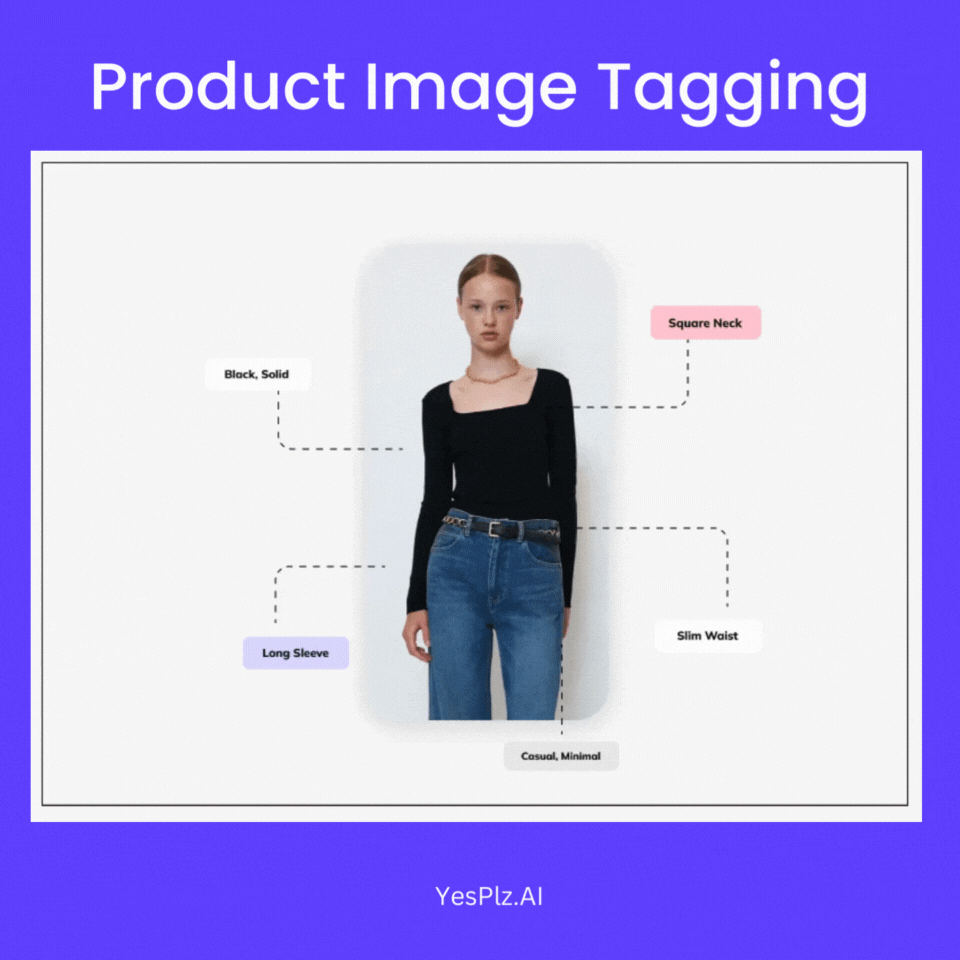
W Concept’s robust product catalog also required robust product tags to set the foundation for enhanced text search.
No product tags? No problem.
With thousands of vendors, W Concept was missing product information, and had some inaccurate information from third-party vendors. YesPlz easily generated these product tags using visual AI.
2. Before: Plain text match searching
After: Rich search suggestions based on both keyword and similar search
By training the data to understand what other styles resemble a search term, we made W Concept’s search more accurate and robust.
For example, if a shopper searched for “tank top,” behind the scenes, search results are based on data that understands the number of similar items to a tank top (including products that don’t have the term “tank top” in their description). A sleeveless shirt, ruched tank top, or square neck tank top still fall under the search query–but wouldn’t be picked up by traditional search unless the terminology was an exact match.
In addition, autocomplete offers the best of both visual and text based search, with updated keywords on the most popular, modern trends.
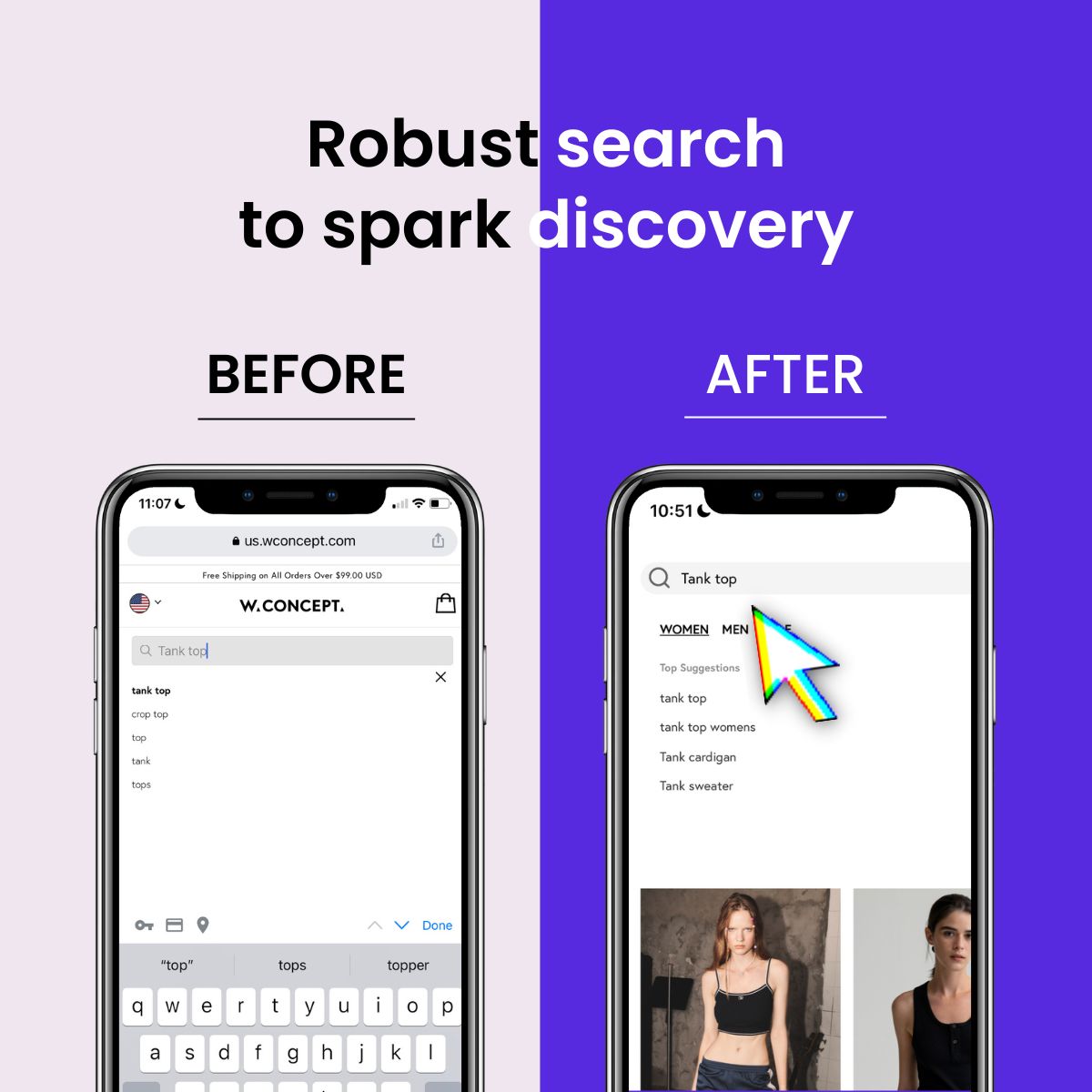
3. Before: No product preview images, not sparking the visual nature of shopping
After: Product previews combined with instant search
All it takes is a single keyword to show matching results with a product preview, resulting in a much more intuitive and better quality discovery experience.
4. Before: Shoppers needed to click on a search term to filter further
After: Integrated side filter helps shoppers quickly filter down as they search
W Concept shoppers needed to click on a search term, load a new page, and then were able to filter based on their preferred product attributes. This not only wasted time, but wasn’t providing the most optimized product filtering experience.
With an added integrated side filter, shoppers can filter based on their text search (for example, a white tank top text search would lead to further filter options related to brand, silhouette, fit)--with white tank top as a preselected first filter. YesPlz filters are designed to be visual, and UX-friendly, unlike text-heavy filters.
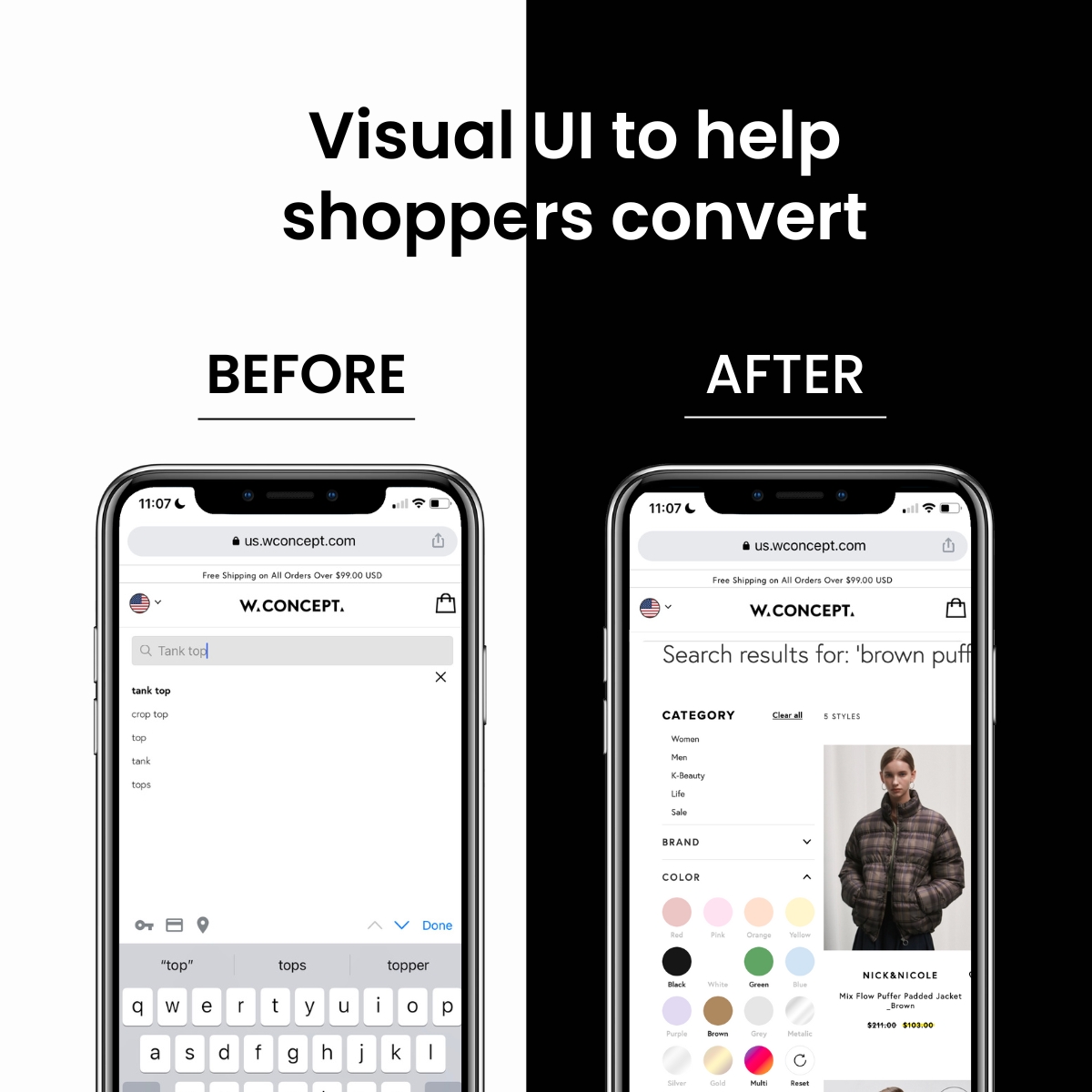
By creating a custom, enhanced eCommerce search that solved all of the above problems, YesPlz transformed W Concept’s text search–resulting in always relevant, effective eCommerce site search that converts.
Can your eCommerce text search do all of this? When powered by visual and text AI, YesPlz text search is revolutionizing the way shoppers search. If your text search provider isn't doing enough, contact us for a free demo.
Written by Jess Erdman
Content Marketing Lead
I'm passionate about creating cool content. The best part? I get to learn new things about fashion tech and ecommerce everyday. Have an idea or opinion about this article? Reach out at jess@yesplz.ai
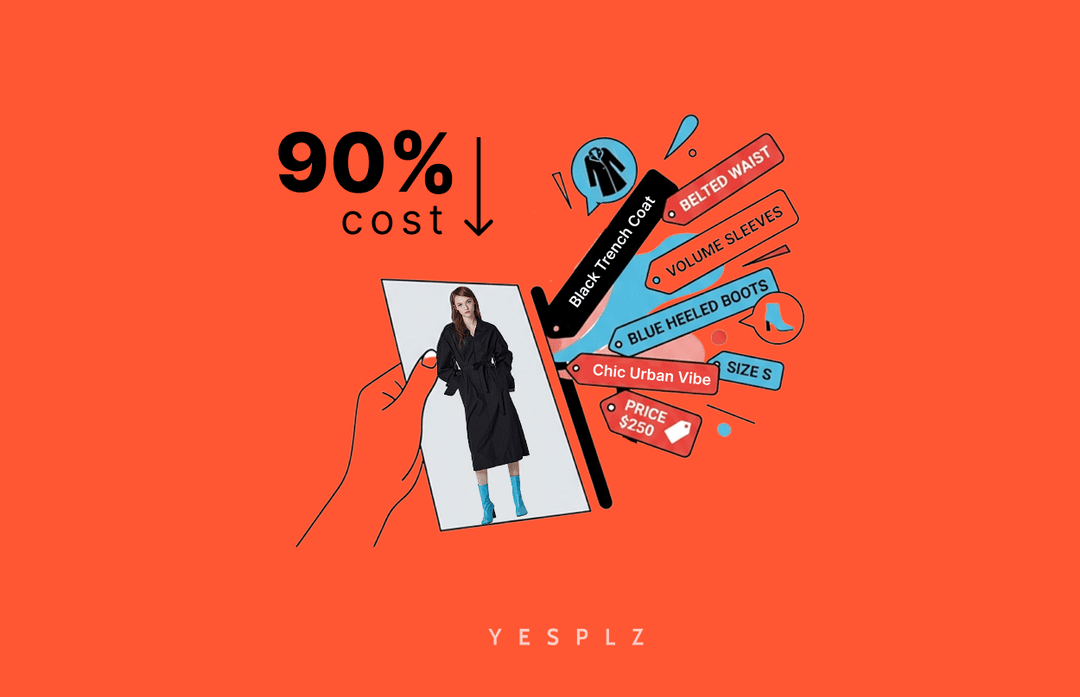
Inconsistent tags hurting sales? Self-service product tagging delivers accuracy and speed without enterprise prices. Tag products 10x faster at 90% lower cost.
by YesPlz.AI
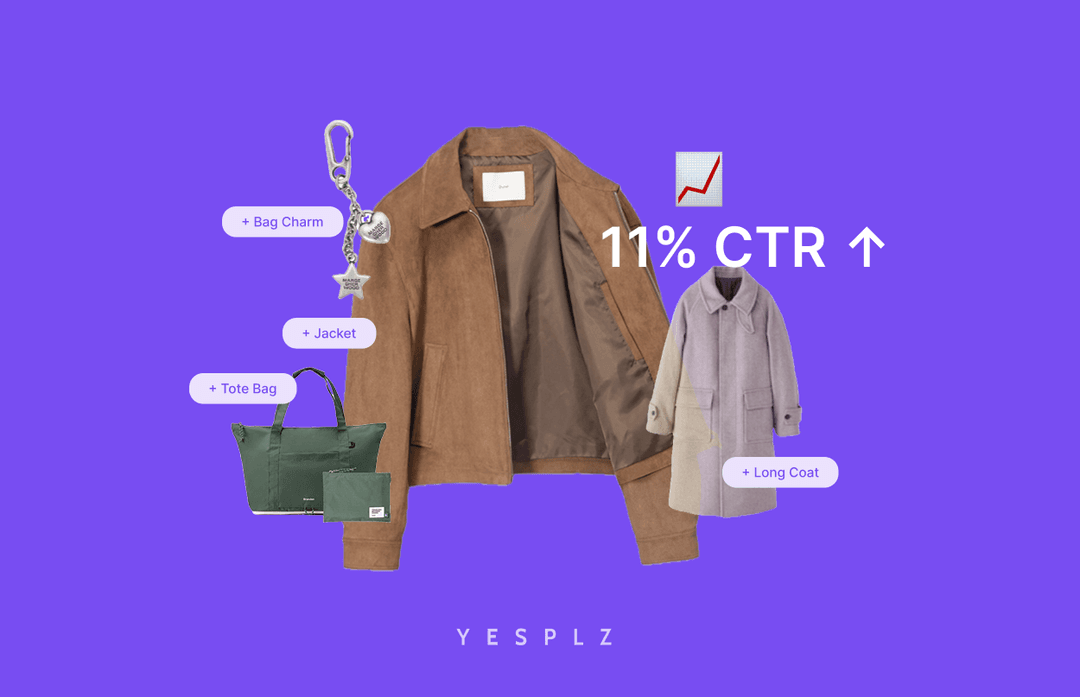
We analyzed 13,374 fashion searches. AI tagging increased product discovery by 22% and boosted clicks by 11%. Here’s what the data revealed.
by YesPlz.AI